Archbishop Yousif Thomas Mirkis holds an unwavering commitment to alleviating human suffering, empowering people to confront challenges, and transforming adversity into opportunities for pioneering projects. The Chaldean Archbishop of Kirkuk and Sulaymaniyah graciously shared his insights during a meeting at the Mar Youssef Church in the Bakhtiari neighborhood of Sulaymaniyah. Joined by Father Ayman Hormuz Aziz, the church’s pastor, he reflected on the current state of Christians in the governorate, the challenges faced by the church, and the impactful projects they have undertaken.
House of Mercy
In an act of kindness, a woman brought her grandfather, who was afflicted with Alzheimer’s, to Mar Youssef Church. This simple gesture planted the seed for a groundbreaking humanitarian initiative: the House of Mercy. Archbishop Yousif, inspired by the woman’s plight and the broader tragedy of thousands suffering from Alzheimer’s, spearheaded the creation of a sanctuary for the afflicted. What began as a response to one family’s need has grown into a five-story hospital, dedicated not only to Alzheimer’s patients, but also to children with autism.
Archbishop Yousif recounts how the project came to life: “The idea of the House of Mercy was born from this case. In 2014, I contacted Dr. Aso Faridoun Ali Amin, the then-governor of Sulaymaniyah, to request a plot of land for the hospital, which was thankfully granted. French architect Bernard Geyler generously agreed to design the hospital and donated the proceeds from his house sale to fund it. Then, Archbishop Yousif enlisted the help of engineer Qasim Ibrahim Hafez from Kirkuk to prepare the detailed plans, and engineer Dylan Latif Boulos was tasked with the implementation. Furthermore, a specialized nursing staff was brought in from India.”
“Since its inception in 2017, the House of Mercy has evolved into a beacon of hope: a medical center specializing in the care of the elderly – particularly Alzheimer’s patients – and children with autism. The center offers its services to all in need, regardless of religion or background,” Archbishop Yousif adds.
“The hope that a new outlook on peace, solidarity, and brotherhood will emerge within this mixture of sects and groups that form Iraq – especially since every human being, regardless of their background, feels pain – is the most valuable project,” he explains.
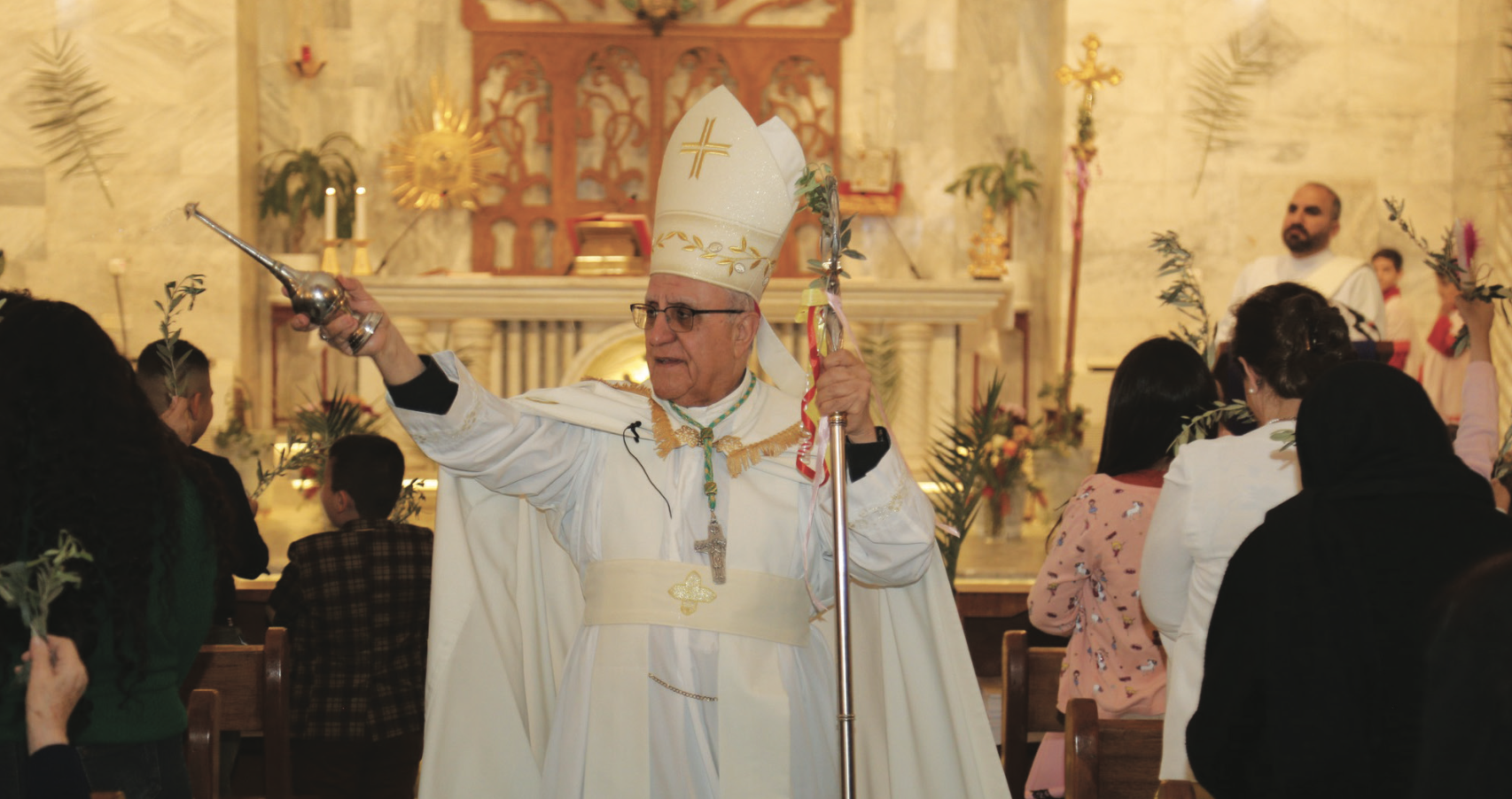
Innovative solutions to societal dilemmas
The House of Mercy stands as a testament to Archbishop Yousif‘s innovative approach to addressing societal challenges. Among his many achievements is the transformation of the Christian cemetery in Sulaymaniyah into a green oasis. He fenced off the area, built a small church, and established a home for a Christian family to maintain and protect it.
Similar efforts were undertaken in Kirkuk, where residents were on the verge of abandoning the Christian neighborhood. Archbishop Yousif’s initiatives included building a community hall, leading a large-scale afforestation campaign in collaboration with the city’s top nursery owner and local youth, and constructing a well and water tank for irrigation. In his pursuit of sustainability, Archbishop Yousif also expanded the use of solar energy systems to reduce reliance on traditional power sources, thereby lowering costs, conserving fuel, and protecting the environment.
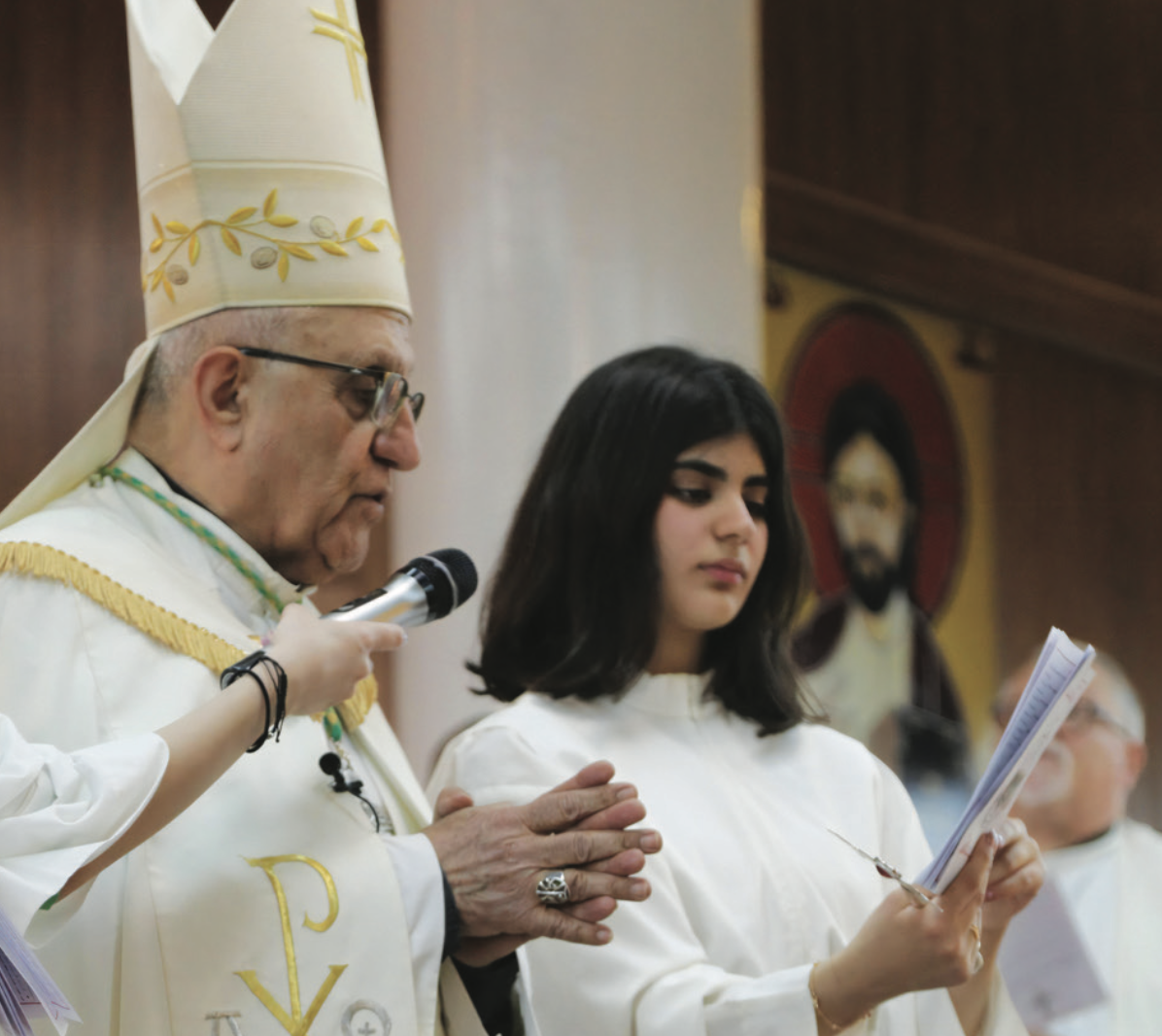
The Christian community in Sulaymaniyah
Reflecting on the Christian presence in Sulaymaniyah, Archbishop Yousif notes that the community, which has been in the region for 234 years, now consists of no more than 200 families, down from nearly 800 before the displacement caused by violence in Iraq.
Despite their diminished numbers, the Christians of Sulaymaniyah are held in high regard, a legacy attributed to the actions of the Christian merchant Karim Alaka during World War I. He sold his property to purchase wheat, which he then distributed to the poor and needy. This legacy, along with the generous care provided by the people of the province and the relevant authorities, has cemented their esteemed standing in the community.
Karim Alaka, whose full name was Abdul Karim Elias Boulos Ibrahim, was known as a merchant who embodied chivalry, generosity, honesty, and trustworthiness. In 1922, Sheikh Mahmud Barzanji appointed him as the Minister of Finance in his government. The local authorities in Sulaymaniyah honored his legacy by naming the street in front of his house Karim Alaka Street and the school on that street Karim Alaka School.
Archbishop Yousif also notes the historical significance of Kirkuk, which was home to the second oldest church after the one in Kokhe, in the Madain area south of Baghdad. This church, established in 113 AD, had a bishopric headed by Bishop Theocritus – a Greek name meaning “the power of God“ – and oversaw a vast area extending from Erbil to Sanandaj in Iran. The Archbishop expresses hope that archaeological excavations will continue to uncover Christian antiquities in Kurdistan, particularly believing that the church discovered by a joint French-Iraqi mission in the Bazian area west of Sulaymaniyah in 2011 is the oldest Christian site in the Kurdistan Region.
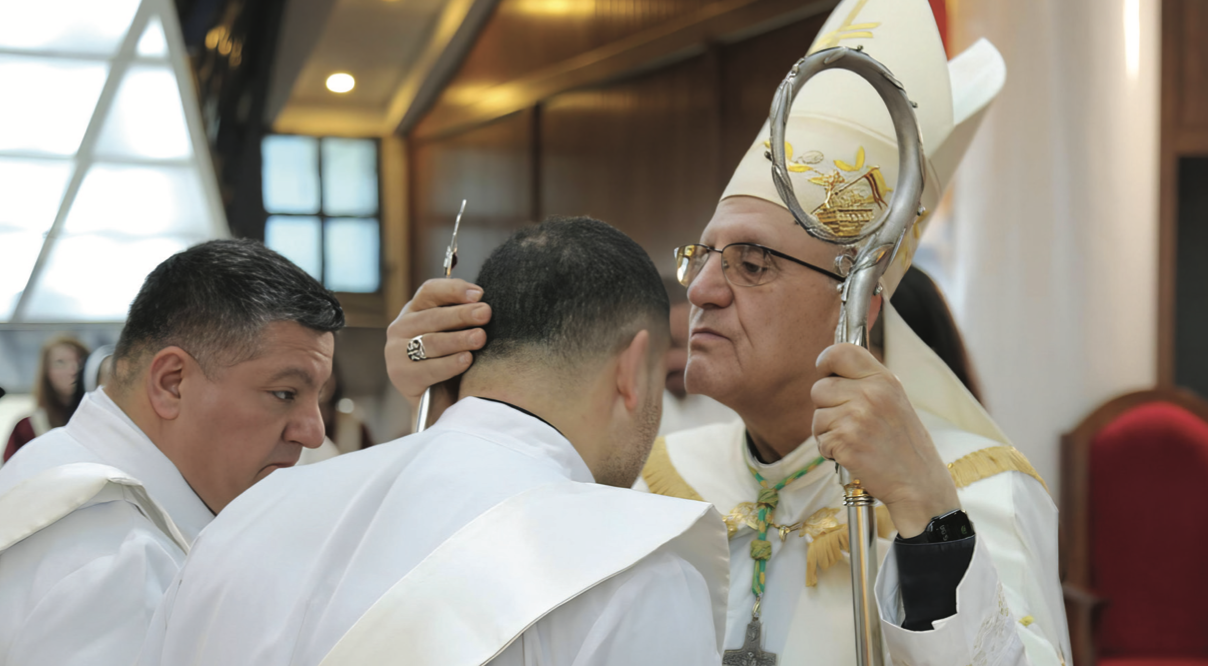
Positive treatment and the spirit of solidarity
Archbishop Yousif emphasizes the Church’s commitment to caring for displaced Christians, managing their needs, and encouraging them to remain in Iraq. He credits the compassionate nature of the Kurdish people for the care Christians receive in Sulaymaniyah and the Kurdistan Region as a whole. Having faced persecution, injustice, and displacement themselves, the Kurds share a deep sense of empathy with the Christian community, which has fostered a bond of solidarity and cooperation. The Bishop reflects on this mutual support by saying that “every stranger is a relative to other strangers,” highlighting the strong connection that has developed between the two communities.
The Archbishop also commends the positive treatment that Christians have received from the Kurdistan Region authorities. He acknowledges that this treatment has brought a sense of peace and security to the Christian community. “When Christians came to Kurdistan,” he notes, “they were treated as if they were Kurds, which allowed their communities to flourish, especially in Ankawa, Erbil, where they now have their own churches, schools, and universities.”
“It is no exaggeration to say that the situation of Christians in the Kurdistan Region is better than in the rest of the Middle East,” he adds.
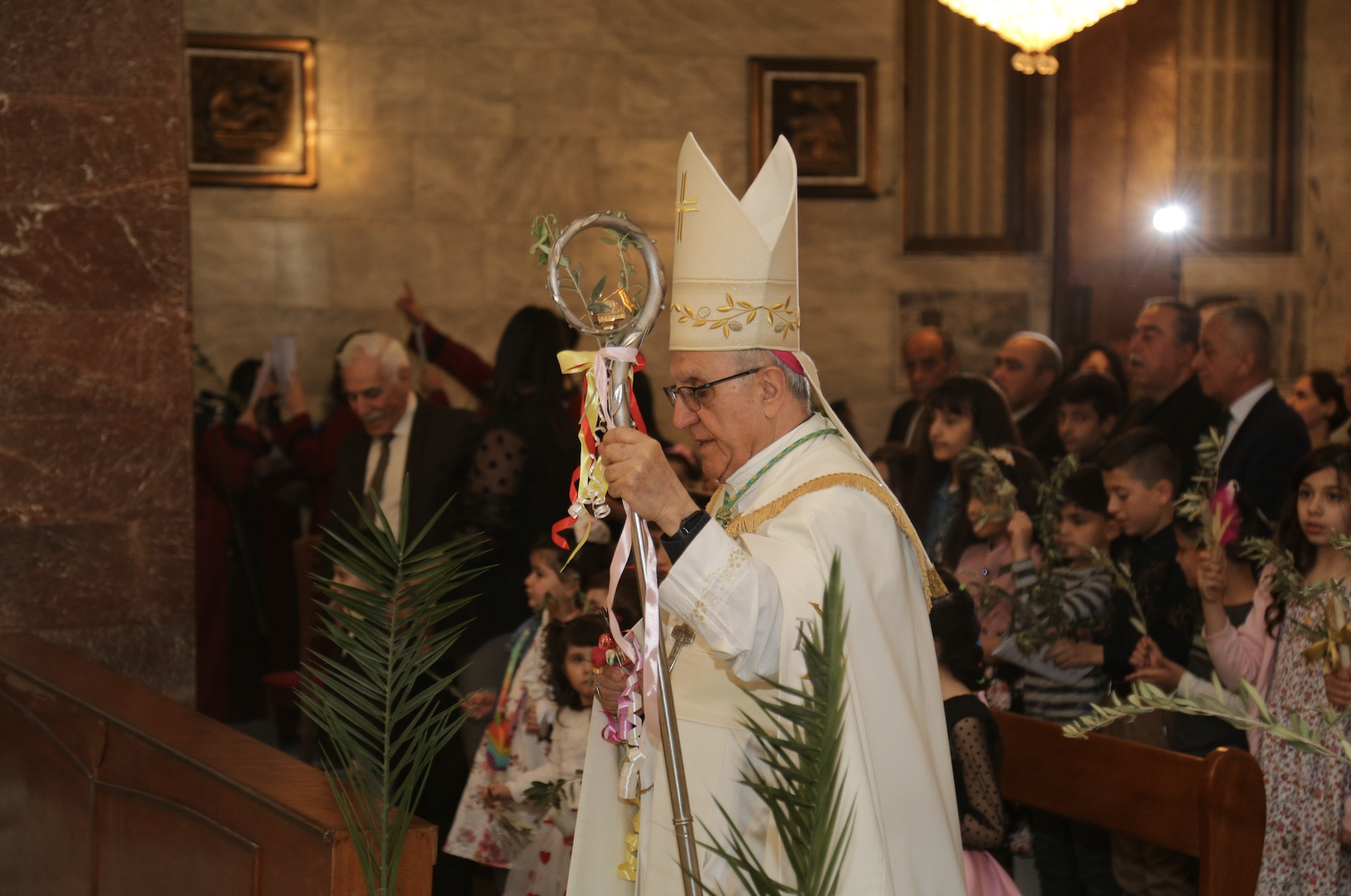
Confusing identity and belonging
Addressing the broader situation in Iraq, Archbishop Yousif draws a parallel between the current conditions and those of European countries between the World Wars, particularly highlighting the confusion between identity and belonging. He argues that while identity is often anchored in a past filled with myths and superstitions, belonging should be forward-looking, with a focus on the future.
The Archbishop calls for a reassessment of old myths and narratives, urging people to abandon those that are divisive or obsolete and to focus instead on building a better future. “Violence is a disease,” he asserts, “and it is sick societies that resort to violence.”
To address problems and meet challenges, he advocates for a just constitution and an impartial judiciary, free from ideological influence. He laments that some still cling to outdated ideologies and sectarianism, stressing that competence should be the guiding principle in governance. “Put the right man in the right place,” he says, “to tackle the numerous challenges facing the country, such as desertification.”
The Archbishop reflects on countries that, just a century ago, were suffering from backwardness and hunger but have since become models of progress and development, with their citizens now enjoying a high standard of living. He emphasizes the importance of positive thinking and the need to promote individuals with experience and competence. To paraphrase Eleanor Roosevelt, “instead of cursing the darkness, light a candle,” he advises, encouraging proactive efforts to foster growth and improvement.
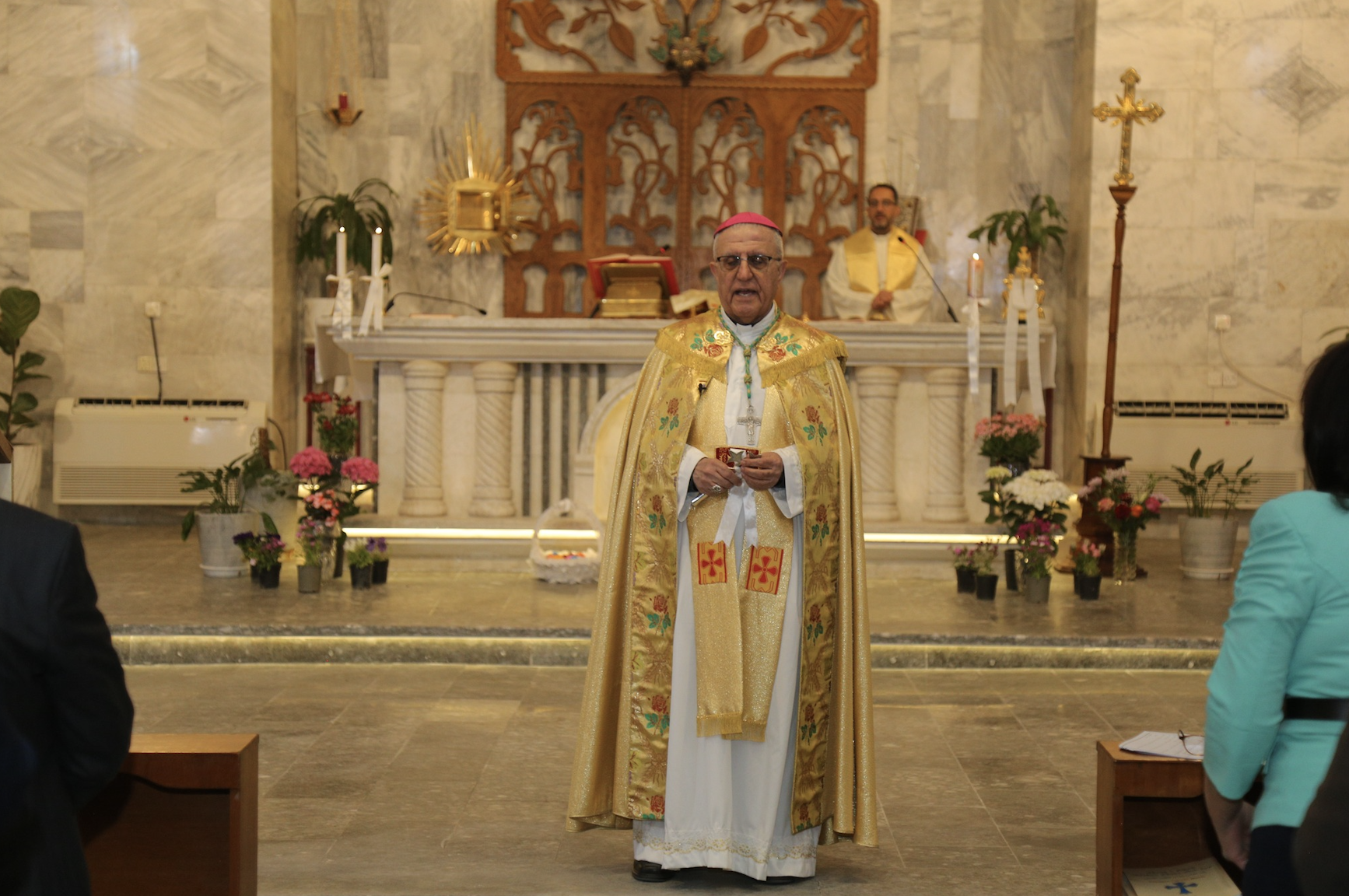
A plea to the majority
Archbishop Yousif firmly rejects the notion of Christians being a “minority” in Iraq, asserting that they are one of the oldest Christian communities in the world, with roots in the region dating back to ancient times, as evidenced by archaeological discoveries. He underscores the importance of protecting coexistence and diversity, emphasizing that the future can be better than the past if these values are upheld. The Bishop also envisions the Kurdistan Region serving as a model of coexistence for other regions.
The Bishop makes a passionate appeal to those who exploit the concept of the majority to dominate and impose their will. He also warns that Iraq will not progress unless corruption is eradicated, competence is prioritized, and fanaticism is rejected.
Archbishop Yousif’s message is one of hope, urging positive thinking and focusing on the future and new generations as essential steps for overcoming the challenges ahead, including environmental ones. He calls on everyone to recognize that the era of fanaticism and rigid ideologies has ended and that the future lies in belonging rather than clinging to outdated beliefs.
Advocating for the separation of religion and state, he believes that harmony among Iraq’s diverse communities is possible. “Coexistence is the only option for building a just society that includes everyone,” he concludes.
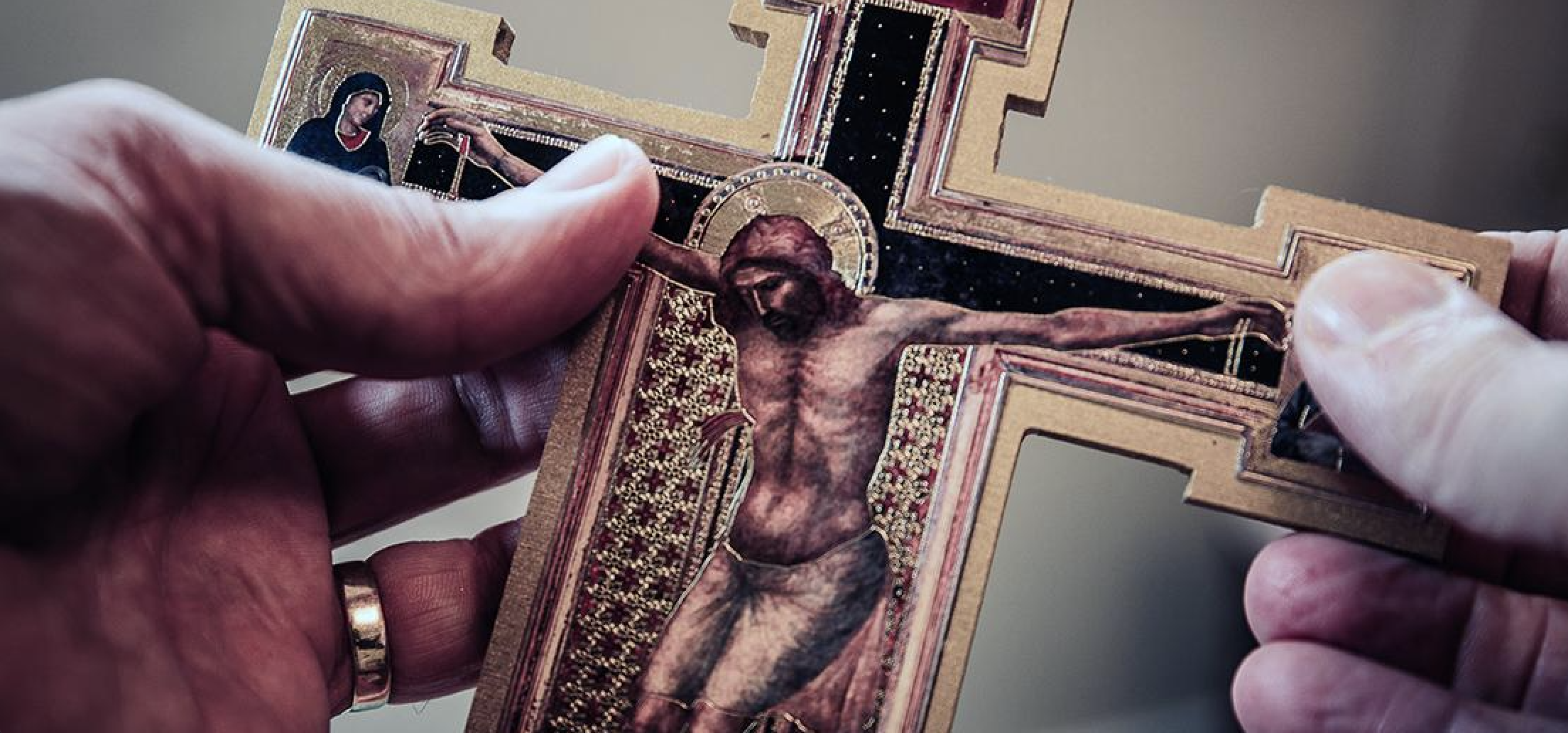
About Youssef Toma
Born on June 21, 1949, in Mosul, Yousif Thomas Mirkis is an Iraqi Chaldean Catholic priest who has served as the Archbishop of the Chaldean Church of Kirkuk and Sulaymaniyah since January 24, 2014. He is also a journalist and human rights activist. Archbishop Yousif studied at the Seminary of Saint John in Mosul from 1962 to 1971, later joining the Dominican Order and completing his studies in Paris. There, he earned a DEA in anthropology from the University of Nanterre and a doctorate in dogmatic theology from the University of Strasbourg.
Ordained as a priest in Mosul on March 26, 1980, Archbishop Yousif contributed to the founding of the Pontifical College of Babylon, where he also taught. From 1995 to 2014, he served as editor-in-chief of the magazine Christian Thought and has published numerous works and over 700 articles. He also oversaw the publication of the first Catholic edition of the New Testament and the Psalms in the Sorani dialect of Kurdish. Archbishop Yousif is fluent in Arabic, Chaldean, French, and English.
Basil Al-Khatib is an Iraqi journalist based in the Kurdistan Region.